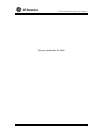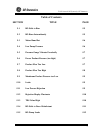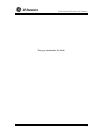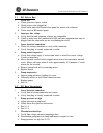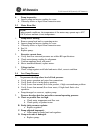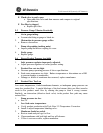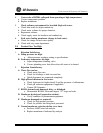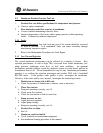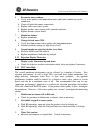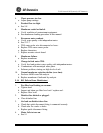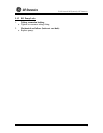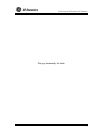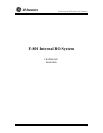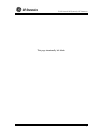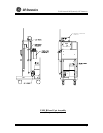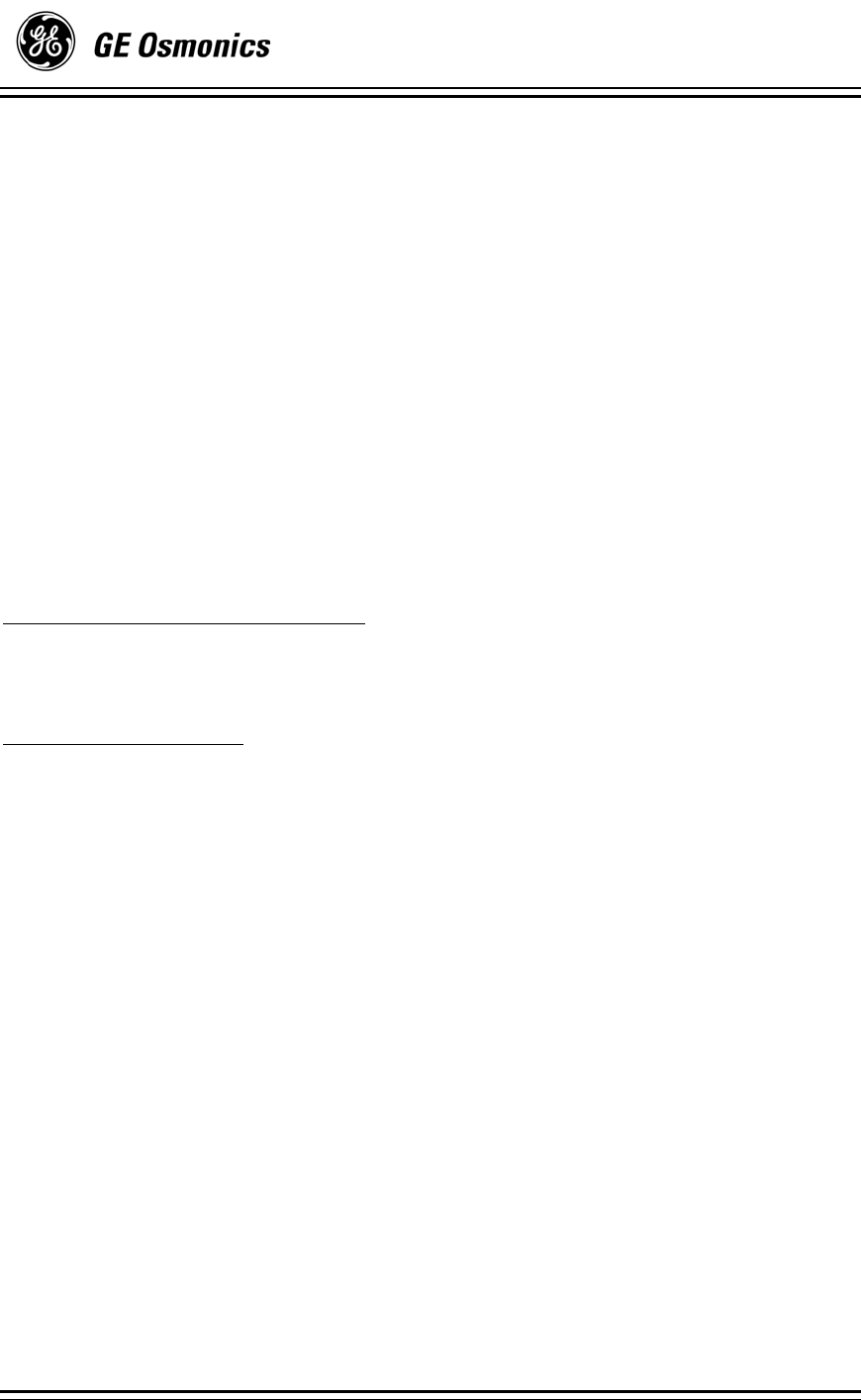
F-801 Internal RO System by GE Osmonics
12552e - 27 Feb 04 5- 10 Troubleshooting
6. Erroneous meter readout.
a. Verify water quality with independent meter and check conductivity probe
connection.
b. Check all quick-disconnect connections.
c. Replace inlet water sensor probe.
d. Replace product water sensor probe (percent rejection).
e. Replace monitor circuit board.
7. Membrane failure.
a. Replace membrane.
8. Change in feed water TDS.
a. Verify feed and product water quality with independent meter.
b. Softener problem, rinsing out high levels of salt.
9. Normal membrane rejection decline (over time).
a. Perform AAMI water lab analysis.
b. Replace membrane if indicated by analysis.
5.12 Rejection Display Fluctuates
1. Display cycles (fluctuates) up and down.
a. Check for defective product recirculation check valve and replace if necessary.
5.13 TDS Value High
The overall membrane performance can be affected by a number of factors. Poor
rejection performance, as well as high TDS, can result from fouled membranes, low
pump pressure, inadequate waste flow, or feed water problems. An apparent
performance problem could be caused by a defective check valve, sensor or circuit
board, and not be a membrane issue at all. The recommended first step for any
‘membrane performance’ question is to confirm the rejection percentage and product
TDS with a hand-held RO/TDS meter. If the product water quality is poor, investigate
the membrane. However, if the water quality tests ‘normal’, investigate the monitoring
circuits.
1. Disinfectant or cleaner left in RO unit.
a. Check for presence of disinfectant or cleaner, rinse as necessary.
2. Air bubble trapped on sensor probe.
a. With RO operating, open and close the product valve to dislodge air.
b. With RO operating, rotate the Dialyze/Flush valve back and forth to dislodge
air.
3. Waste flow too low.
a. Measure and compare to original data. Correct as necessary.



